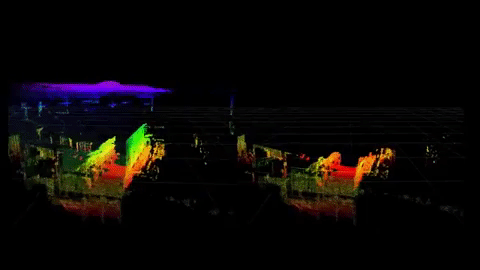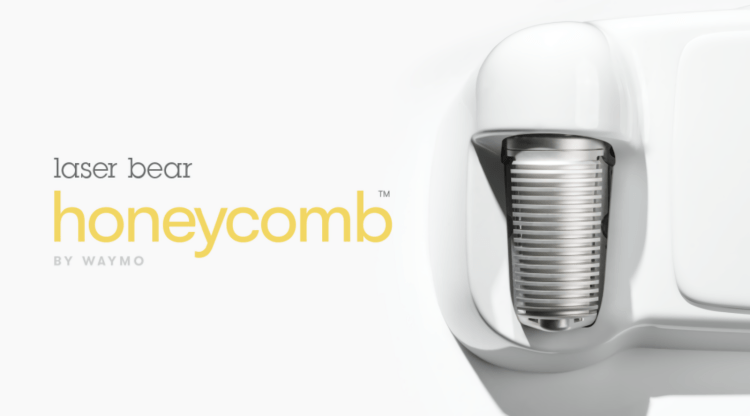Watch all the Transform 2020 sessions on-demand here.
Waymo, Google parent company Alphabet’s self-driving car division, today announced that it will begin selling the custom-designed lidar sensors it uses on its driverless cars to other companies. Lidar — sensors that measure the distance to target objects by illuminating them with laser light and measuring the reflected pulses — form the foundation of a number of autonomous car systems, including those from Uber and Lyft, and have applications in verticals like robotics, security, and agricultural technology.
“Our custom lidars have been instrumental in making Waymo the first company in the world to put fully self-driving cars on public roads,” Waymo wrote in a Medium post. “Now, we are making these sensors available to companies outside of self-driving … so they can achieve their own technological breakthroughs. Today, we’re announcing that one of our 3D lidar sensors, which we call Laser Bear Honeycomb, is available to select partners.”
According to Waymo, Laser Bear Honeycomb has several advantages over run-of-the-mill 3D lidar sensors. It boasts a vertical field of view of 95 degrees, instead of the standard 30 degrees, and a 360-degree horizontal view. And when it sends out a pulse of light, it can see up to four objects in a laser beam’s line of sight (for example, both the foliage in front of a tree branch and the tree branch itself). Moreover, the lidar sensor has a minimum range of zero, meaning it’s able to perceive objects immediately in front of it, enabling capabilities such as near-object detection and avoidance.
“Offering this lidar to partners helps spur the growth of applications outside of self-driving cars and also propels our business forward,” Waymo said. “We can scale our autonomous technology faster, making each sensor more affordable through economies of scale.”
June 5th: The AI Audit in NYC
Join us next week in NYC to engage with top executive leaders, delving into strategies for auditing AI models to ensure fairness, optimal performance, and ethical compliance across diverse organizations. Secure your attendance for this exclusive invite-only event.

Above: Left: An image using Waymo’s Honeycomb point cloud. Right: typical lidar.
With Laser Bear Honeycomb’s debut, Waymo is entering a market some analysts predict will be worth $1.8 billion in just five years, but it’s got plenty in the way of competition. There’s AEye, a San Francisco-based company that claims its lidars can exceed the range and scan rate of traditional technologies. Israeli startup Innoviz Technologies raised $65 million in September 2017 for its sensor tech, following funding rounds by Oryx and TetraVue. And Luminar, which claims to have developed lidars with a range of more than 250 meters and a 120-degree field of view, recently announced a strategic partnership with Volvo. That’s not to mention far-infrared pioneer AdaSky, ground-penetrating radar startup WaveSense, Baraja, and velocity-measuring sensor company Aeva, all of which seek to develop technologies that complement traditional vision-based autonomous car perception systems.
But there’s already interest in Waymo’s sensors. A spokesperson told Bloomberg that the company is in talks with “dozens” of potential customers and expects to start building the lidar sensor at “several” facilities on the West Coast in the next few weeks.
Today’s announcement comes months after Waymo announced it would retrofit a 200,000-square-foot manufacturing space in Michigan to assemble self-driving cars and two years after it began building and testing driverless Chrysler Pacifica hybrid minivans in the Detroit Metro area. The vehicles are currently produced in Windsor and shipped to the Novi center, where they’re outfitted with hardware and software by Waymo and Chrysler engineers.
Waymo sought to begin adding up to 62,000 minivans to its fleet before the end of 2018, and it has signed a deal with Jaguar Land Rover to equip 20,000 of the automaker’s Jaguar i-Pace electric SUVs with its autonomous system by 2020.
Waymo also recently launched its commercial driverless car service — Waymo One — in Phoenix, Arizona. And in October 2018 it became the first company to obtain a fully driverless car permit in California, where it got the green light to test its self-driving cars on public roads. Waymo claims its cars have driven 10 million miles autonomously on public roads in 25 states, and 7 billion simulated miles.


